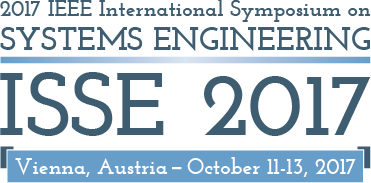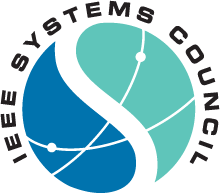Tutorial Listing
Practical insights into web-based, collaborative engineering of complex hardware systems
Time: Wednesday, October 11 08:00 - 10:00
Instructors: Louise Lindblad, Marco Witzmann, Simon Vanden Bussche (Valispace UG, Germany)
Abstract: This paper presents a web-based data storage and collaboration software which aims to transform the way collaborative engineering of complex hardware, such as satellites, power plants, or autonomous vehicles, is done. In addition to using insights from Model Based Systems Engineering practices, the software takes advantage of modern web technologies and platforms to enable efficient and streamlined team work throughout the project life cycle to reduce costs and development time. In the software, engineers create a logical model of the product they are developing. All technical properties are stored in one consistent database with formulas connecting these properties. Connected data is what sets the proposed tool apart from current document based solutions, as it ensures rapid visualization of parameter dependencies and clear views on how design changes affect the whole system. The proposed workshop will cover the motivation of developing a web-based collaboration tool for engineers, along with a general discussion among participants on the most meaningful features of such a tool. Thereafter, the proposed solution and developed collaboration tool will be presented. Lastly, participants will engage in an interactive modelling session to gain practical knowledge about the web-based interface. The participants are expected to gain new insights into how modern web technologies can be used to streamline the engineering processes of complex hardware systems. The workshop is proposed to consist of a hands-on, interactive session of 2 hours, where the participants share knowledge and experience about their current workflows and gain knowledge about new, efficient collaboration tools.
Complex Systems Architecting with Object-Process Methodology (ISO-19450): A Model-Based Operational-Functional-Structural Approach
Time: Wednesday, October 11 10:15 - 12:00
Instructors: Yaniv Mordecai (Technion - Israel Institute of Technology, Israel); Dov Dori (Technion, Israel Institute of Technology, Israel)
Abstract: Specifying a complex system's architecture - combination of structure and behavior that enables the functionality of the system in its operational context - is a critical task in the preliminary stages of complex systems development. The architecture is specified through gradual transition from the problem domain and operational stakeholder requirements capturing to the conceptual solution design, functional requirements elaborating, technology selection, asset utilization, and allocation of functionality to form. The way the architecture is specified will have an immense impact on the deployment, performance, robustness, and endurance of the system. Badly-planned, outdated, or form-based architectures could result in failure to provide value to the customers, stakeholders, or beneficiaries. Model-Based Systems Engineering (MBSE) provides a framework for effective and consistent system engineering and architecting. MBSE relies on modeling languages, such as Object-Process Methodology (OPM). The major advantage of MBSE using a formal language such as OPM, is the integrated view of the system, allowing for structured and informed management, reasoning, decision-making, and identification of risks and opportunities. OPM is a holistic MBSE paradigm and language for complex systems and processes, standardized as ISO 19450. OPM covers the structural, procedural, and functional aspects of the system in a unified manner, using only one diagram kind - the Object-Process Diagram (OPD). In this tutorial, participants will learn: 1) the basics of MBSE and OPM, and 2) the principles of a framework for utilizing OPM for complex system architecting, while accounting for the operational, functional, and structural aspects of the system. These will be demonstrated on a real-life case of complex systems architecture in the domain of public safety. The tutorial will be delivered like an industrial architecture workshop. Participants will take significant part in constructing the architecture model with the speaker, and will be able to install the OPM modeling software on their mobile computers in order to practice and experiment hands-on with this approach.
A Tutorial on Uncertainty-wise Testing of Cyber-Physical Systems
Time: Wednesday, October 11 10:15 - 12:00
Instructors: Shaukat Ali, Tao Yue and Man Zhang (Simula Research Laboratory, Norway)
Abstract: Both academia and industry are increasingly recognizing the importance of handling uncertainty in Cyber-Physical Systems (CPSs). To this end, as part of a European Horizon2020 project (www.u-test.eu), we have developed a modeling methodology called UncerTum for creating test ready models of CPSs with explicit consideration of uncertainty. We built the UncerTum methodology on the Unified Modeling Language (UML) by establishing dedicated profiles including the UML Uncertainty Profile (UUP), in addition to integrating existing UML profiles such as Modeling and Analysis of Real-time Embedded Systems (MARTE). This tutorial will give a lecture on how our modeling solution implemented in IBM Rational Software Architect can be used to create test ready models of a CPS under test with UncerTum. Also, we will describe how our test case generation support (UncerTest) can be used to generate executable test cases from the created test ready models and use them to test a CPS under uncertainty.
Tutorials will be held on Wednesday morning, October 11. Registration for Tutorials is separate from the symposium registration.


